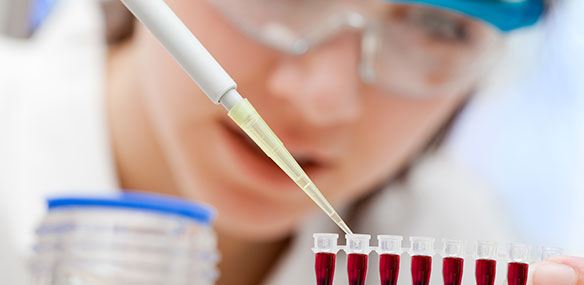Cancer is complex and caused by many different factors. While everyone has a chance to develop cancer, some people are more likely to develop cancer due to environmental or genetic risk factors.
Genetic counseling and testing can be useful for people who have cancer or who have a family history of cancer. The information can help determine personal cancer risks so healthcare providers can take the appropriate steps to either prevent the cancer from developing or diagnose it at an earlier stage. For people who already have cancer, genetic testing may help with treatment decisions.
Our genetic counselors will review your family’s cancer-risk profile. If that history suggests a higher than normal degree of risk, we may suggest genetic testing to seek out known gene mutations that increase your risk of cancer. In addition to reviewing your personal and family history of cancer, we’ll discuss the possible outcomes of genetic testing, limitations of the technology and the emotional and legislative implications of genetic information.
Testing is done on a small amount of body tissue or fluid, typically blood or saliva. An appointment will be scheduled to discuss the results when they are available. A positive test doesn't guarantee that you'll get the cancer, but it does enable you or your loved one to be screened at regular intervals.

You should consider genetic counseling if you or a family member:
- Have been diagnosed with cancer under age 50.
- Have multiple relatives on the same side of the family who've been diagnosed with cancer.
- Have a mother, father, siblings or children who develop cancer.
- Had cancer at an early age, or a family member with cancer at an early age.
- Have a known hereditary cancer syndrome; that is, you've tested positive for a known genetic mutation related to hereditary cancer, such as BRCA or Lynch Syndrome.
- Have a family member with a positive gene test for a cancer with a genetic cause, such as breast or ovarian cancer.
- Are of Ashkenazi Jewish heritage.
Genetic testing is not right for everyone, and it involves a very personal decision. Seeing a genetic counselor is an educational opportunity and does not mean you are required to undergo genetic testing.
Location:
CPMC Cancer Center, Pacific Campus
2351 Clay Street, Suite 380
San Francisco, CA 94115














